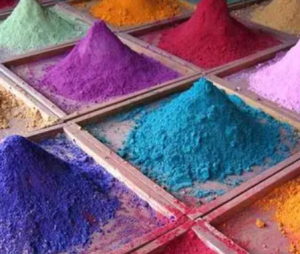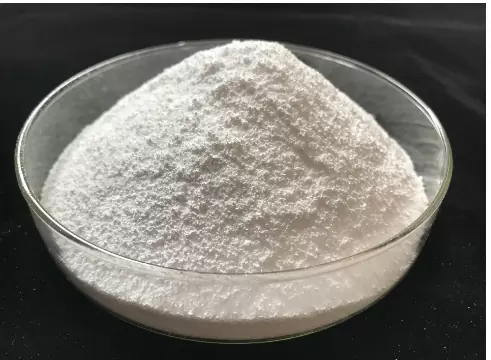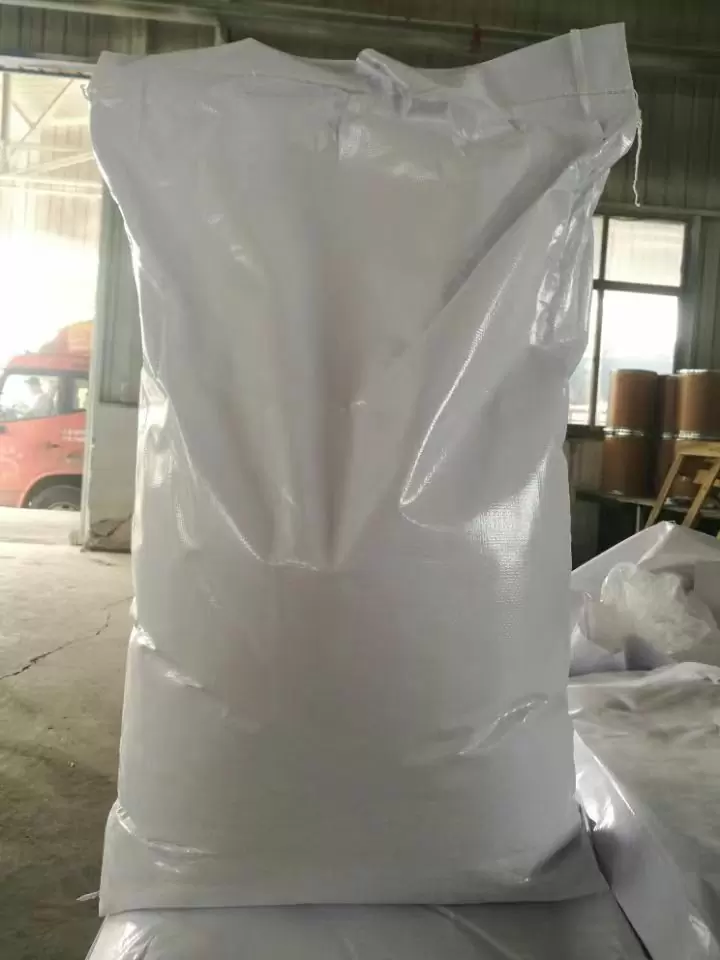Benzoic acid is a white (or colorless) solid with the formula C6H5CO2H. It is the simplest aromatic carboxylic acid. The name is derived from gum benzoin, which was for a long time its only source. Benzoic acid occurs naturally in many plants and serves as an intermediate in the biosynthesis of many secondary metabolites. Salts of benzoic acid are used as food preservatives. Benzoic acid is an important precursor for the industrial synthesis of many other organic substances. The salts and esters of benzoic acid are known as benzoates .
Benzoic acid is produced commercially by partial oxidation of toluene with oxygen. The process is catalyzed by cobalt or manganese naphthenates. The process uses abundant materials, and proceeds in high yield.
The first industrial process involved the reaction of benzotrichloride (trichloromethyl benzene) with calcium hydroxide in water, using iron or iron salts as catalyst. The resulting calcium benzoate is converted to benzoic acid with hydrochloric acid. The product contains significant amounts of chlorinated benzoic acid derivatives. For this reason, benzoic acid for human consumption was obtained by dry distillation of gum benzoin. Food-grade benzoic acid is now produced synthetically.


Uses Benzoic acid
The uses of benzoic acid are as follows:
1. In batteries
2. Home air fresheners, including candles with a fragrance.
3. Cleaning products for carpets or other floorings that do not fit into a more refined category.
Benzoic acid in food:
Food with naturally occurring benzoic acid – ripe cloves, most berries and cinnamon. Benzoic acid is used in the preservation of food. Example – salad dressings, soft drinks, fruit juices and pickles. Usually, processed food has benzoic acid to inhibit the growth of bacteria, mould and yeast


Uses of benzoic acid in medicine and healthcare:
Benzoic acid 210 is used in pharmaceuticals. It is used as a preservative in drugs. It is also present in baby products, skin products, cleansing products, hair and nail products, soaps, bath products, detergents etc.
Uses of benzoic acid in treatment:
It helps in the prevention of bacterial infection. It is used as an antifungal for treating diseases like ringworm and athlete’s foot. It is excreted as hippuric acid after conjugation with glycine in the liver. The excreted hippuric acid is not highly toxic. It is used in the treatment of skin irritation caused by insect bites, burns etc.
Other uses of benzoic acid:
Used in toothpaste, jam, beverages, poultry, agriculture, perfume, dye etc.










